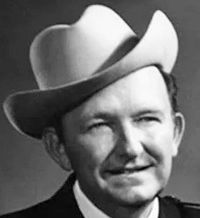A Quote by Thomas B. Macaulay
In the modern languages there was not, six hundred years ago, a single volume which is now read. The library of our profound scholar must have consisted entirely of Latin books.
Related Quotes
I can read more languages than I speak! I speak French and Italian - not very well, alas, but I can get by. I read German and Spanish. I can read Latin (I did a lot of Latin at school.) I'm afraid I do not speak any African languages, although I can understand a little bit of the Zulu-related languages, but only a tiny bit.
We are in the position of a little child entering a huge library, whose walls are covered to the ceiling with books in many different languages. The child knows that someone must have written those books. It does not know who or how. It does not understand the the languages in which they are written. The child notes a definite plan in the arrangement of the books, a mysterious order, which it does not comprehend but only dimly suspects.
The great British Library --an immense collection of volumes of all ages and languages, many of which are now forgotten, and most of which are seldom read: one of these sequestered pools of obsolete literature to which modern authors repair, and draw buckets full of classic lore, or pure English, undefiled wherewith to swell their own scanty rills of thought.
I work in Hebrew. Hebrew is deeply inspired by other languages. Not now, for the last three thousand years, Hebrew has been penetrated and fertilized by ancient Semitic languages - by Aramaic, by Greek, by Latin, by Arabic, by Yiddish, by Latino, by German, by Russian, by English, I could go on and on. It's very much like English. The English language took in many many fertilizations, many many genes, from other languages, from foreign languages - Latin, French, Nordic languages, German, Scandinavian languages. Every language has influences and is an influence.
I am not of the opinion generally entertained in this country [England], that man lives by Greek and Latin alone; that is, by knowing a great many words of two dead languages, which nobody living knows perfectly, and which are of no use in the common intercourse of life. Useful knowledge, in my opinion, consists of modern languages, history, and geography; some Latin may be thrown into the bargain, in compliance with custom, and for closet amusement.
Now, almost one hundred years later, it is difficult to fully appreciate how much our picture of the universe has changed in the span of a single human lifetime. As far as the scientific community in 1917 was concerned, the universe was static and eternal, and consisted of a one single galaxy, our Milky Way, surrounded by vast, infinite, dark, and empty space. This is, after all, what you would guess by looking up at the night sky with your eyes, or with a small telescope, and at the time there was little reason to suspect otherwise.
A few years ago, they [Neandertals] were thought to be ancestral to anatomically modern humans, but now we know that modern humans appeared at least 100,000 years ago, much before the disappearance of the Neandertals. Moreover, in caves in the Middle East, fossils of modern humans have been found dated 120,000-100,000 years ago, as well as Neandertals dated at 60,000 and 70,000 years ago, followed again by modern humans dated at 40,000 years ago. It is unclear whether the two forms repeatedly replaced one another by migration from other regions, or whether they coexisted in some areas
A Hundred Years From Now Well a hundred years from now I won't be crying A hundred years from now I won't be blue And my heart would have forgotton she broke ever vow I won't care a hundred years from now Oh, it seem like yesterday you told me You couldn't live without my love somehow Now that you're with another it breaks my heart somehow I won't care a hundred years from now * Refrain Now do you recall the night sweetheart you promised Another's kiss you never would allow That's all in the past dear it didn't seem to last I won't care a hundred years from now * Refrain
'Jane Eyre' must have been something I read six or seven times as an early adolescent. And 'Kristin Lavransdatter,' and 'Lorna Doone' when I was younger. My parents had a pretty rich library, no jackets on any of the books, so no descriptions. You just pulled something off the shelf and started to read it.
































